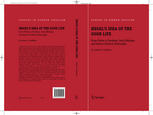

Most ebook files are in PDF format, so you can easily read them using various software such as Foxit Reader or directly on the Google Chrome browser.
Some ebook files are released by publishers in other formats such as .awz, .mobi, .epub, .fb2, etc. You may need to install specific software to read these formats on mobile/PC, such as Calibre.
Please read the tutorial at this link: https://ebookbell.com/faq
We offer FREE conversion to the popular formats you request; however, this may take some time. Therefore, right after payment, please email us, and we will try to provide the service as quickly as possible.
For some exceptional file formats or broken links (if any), please refrain from opening any disputes. Instead, email us first, and we will try to assist within a maximum of 6 hours.
EbookBell Team

0.0
0 reviewsIn Hegel’s Idea of the Good Life, Joshua D. Goldstein presents the first book-length study of the development and meaning of Hegel’s account of human flourishing.
When compared to the robust conceptions of human excellence found in ancient virtue ethics or the commitment to individualism in the modern ethics of the will, Hegel’s political thought can appear impoverished for its failure either to embrace or exposit those highest ideals of human flourishing that might provide an adequate guide to life. By bringing Hegel’s earliest writings into dialogue with his Philosophy of Right, Goldstein argues that Hegel’s mature political philosophy should be understood as a response to his youthful failure to build a sustainable account of the good life upon the foundations of ancient virtue. Through a clear and detailed textual interpretation, this study reveals how Hegel’s mature response integrates ancient concerns for the well-ordered life and modern concerns for autonomy in a new, robust conception of selfhood that can be actualized across the full expanse of the modern political community.
Hegel’s Idea of the Good Life provides extensive analysis of the foundational essays in the formation of Hegel’s youthful thought (including the Tübingen essay, Berne Fragments, The Life of Jesus) as well as the structuring features of his mature political philosophy (including a critical reconstruction of freedom, ethical institutions, and experience within the Philosophy of Right).
Goldstein’s contribution to the Studies in German Idealism series will be welcomed by philosophers and political theorists seeking to engage with the details of Hegel’s early and mature social thought.